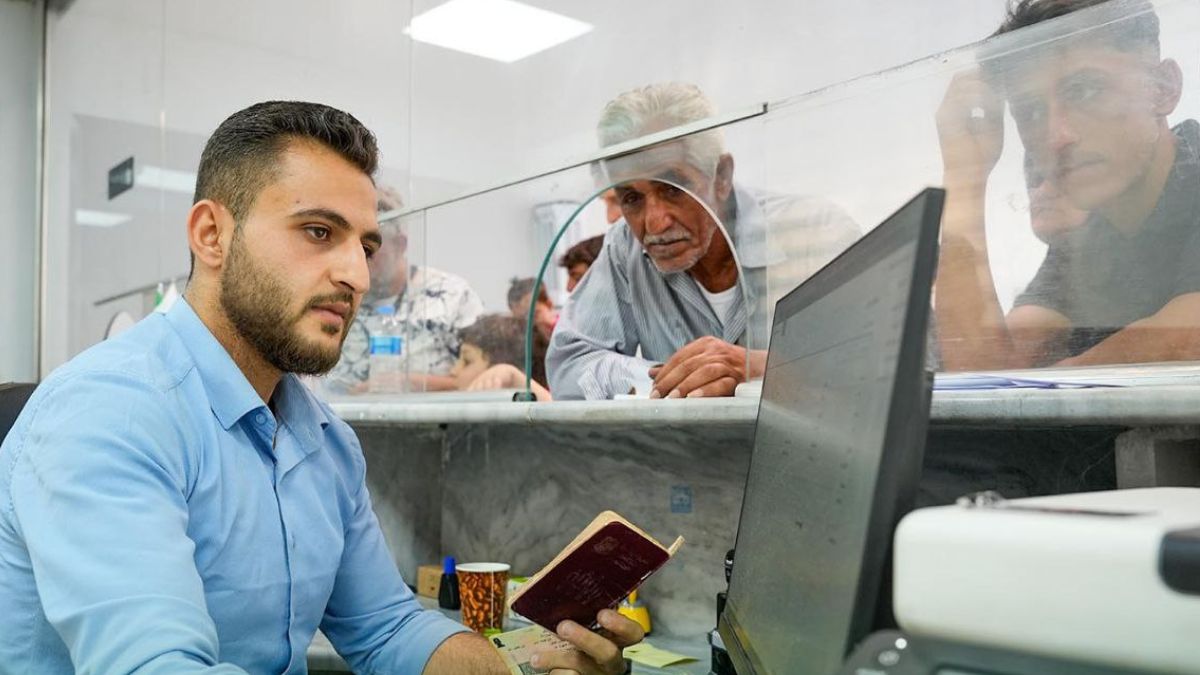The General Authority for Land and Sea Border Crossings announced on Monday, August 18, that Syrian expatriates can now enter Syria through border crossings with Turkey without obtaining prior permission.
In a statement on Facebook, the authority explained that Turkish authorities had issued a memorandum regulating entry and exit procedures for Syrians holding residency in countries other than Turkey, as well as Syrians with citizenship of a third country. The new rules apply at crossings including Kessab, Bab al-Hawa, al-Hamam, al-Salama, al-Rai, and Jarablus.
According to the memorandum, Syrians with valid residence permits in countries worldwid, except Turkey, or those holding a second nationality are allowed to enter Syria with their vehicles and return through the same land crossing, without prior authorization.
Syrians over 18 who also hold a foreign nationality may cross provided they carry both their foreign passport and a Syrian passport, even if the latter has expired. Children of expatriates under 18 who hold a foreign nationality but do not possess a Syrian passport may enter using only their foreign passport.
The statement added that all travelers are permitted to bring private cars through the crossings, subject to set fees, provided they comply with the permitted duration of stay inside Syria.
Previous Transit Conditions via Turkey
Earlier, the authority had set conditions for Syrians abroad (excluding those residing in Turkey) to transit through Turkish territory to reach Syria, limited to Bab al-Hawa crossing.
According to a July 6 statement, Syrians were previously required to obtain prior transit permission to enter and leave Syria via Turkey. The application process involved submitting a form with several documents: a copy of the Syrian passport, a copy of the second nationality passport or residence permit in the country of departure, and proof of a flight booking if available.
For families, an application was required for each individual, with personal details written exactly as in the passport, in English. Processing could take up to 15 days.
Mazzen Alloush, director of relations at the authority, said at the time that the measure was temporary until Turkish authorities allowed normal movement across the border, as with other countries.
The mechanism covered Syrians living worldwide (except Turkey) with valid residency or a second nationality who wished to return to Syria via Turkey. Adults with a second nationality could apply even if their Syrian passport had expired. Children under 18 with a foreign nationality but without a Syrian passport were also permitted to cross with their foreign passport.
However, Syrians who had entered Syria through Jordan, Lebanon, or Damascus International Airport could not benefit from this mechanism and were required to apply for transit permission at the Turkish Embassy in Damascus or the Turkish Consulate in Aleppo.
The decision was particularly important for Syrians in Europe, who had faced difficulties reaching Syria due to lengthy travel times and the high cost of multi-leg flights.
if you think the article contain wrong information or you have additional details
Send Correction
